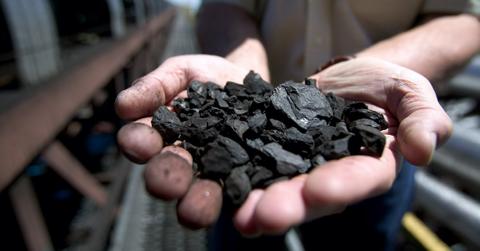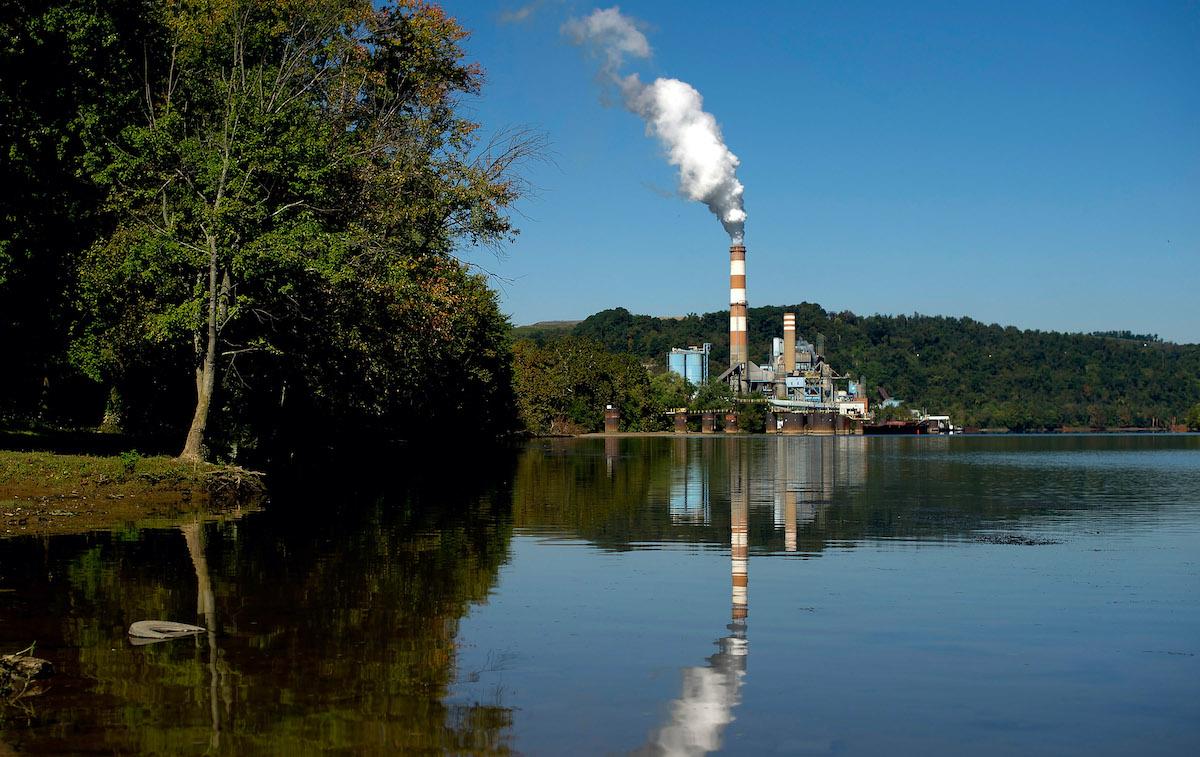EPA Rolls Backs Mercury Regulations, Bailing Out the Fossil Fuel Industry
The Trump administration just weakened mercury pollution regulations for oil and coal power plants.
Updated April 29 2020, 4:52 p.m. ET

Right now, during the coronavirus pandemic, it’s more important than ever to protect the health of the people. Unfortunately, there are some who believe protecting the fossil fuel industry — and its money — is even more important. The Trump administration and the EPA just rolled back yet another law protecting both the environment and public health; this time, it’s one that regulates the release of mercury and other toxic metals from oil and coal power plants.
The Trump administration made the change to the Mercury and Air Toxic Standards, which were put into place by the Obama administration in 2012, on Thursday, April 16. The Mercury and Air Toxic Standards have helped coal-fired power plants reduce their mercury pollution by more than 80 percent over the past eight years, according to AP News. Power plants are currently the U.S.’s biggest source of mercury and many other toxic metals.
As the EPA detailed in a press release on Thursday, the changes to the standards simply “[correct] flaws in the 2016 supplemental cost finding while ensuring that power plants will emit no more mercury to the air than before.”
The EPA’s changes do not completely eradicate the regulations preventing the fossil fuel industry from emitting mercury. Rather, they introduce a new cost-benefit analysis method for reducing mercury pollution from power plants, which could in turn be used to weaken regulations on limiting other pollutants, as explained by The New York Times.

EPA Administrator Andrew Wheeler, who once lobbied against the Department of Energy in an attempt to score government bailouts for the fossil fuel industry, defended the move in a call with reporters by calling it an “honest accounting method that balances” the utility cost with public safety, AP News reported.
According to The New York Times, when the regulations first became law in 2012, they required power plants to install infrastructure that limits mercury pollution, which costs the lucrative industry up to $9.6 billion a year. With so many people on lockdown and not using their cars, flying in planes, or doing other activities dependent on fossil fuels, the fossil fuel industry is currently less profitable than usual, and it seems like the Trump administration is trying to help the oil and coal industry by eliminating that annual $9.6 billion.
This move by the Trump administration is not “honest accounting” — it is a government bailout of the fossil fuel industry.
Environmentalists criticized the EPA's changes to the Mercury and Air Toxic Standards.
“This is an absolute abomination,” former NRDC President and Obama-era EPA Administrator Gina McCarthy, said, as per Reuters. “The only ones to benefit from this are powerful polluters — at the expense of our health, and our children’s health.”
“[The] EPA is all but ensuring that higher levels of harmful air pollution will make it harder for people to recover in the long run” from COVID-19, Sen. Tom Carper, D-Delaware, who serves on the Senate Environment and Public Works Committee, said, according to AP News.
“It’s beyond stupid to repeal a rule that has contributed so much to cleaner air and protecting children from a potent neurotoxin,” Environmental Working Group President Ken Cook said in a statement. “The Trump EPA is actively working against the American people and their health and safety – and there’s no clearer example than this reckless decision made at the behest of a few coal industry executives.”
Is mercury toxic?
Even though mercury is a naturally occurring element that can be found in the soil, water, and air, exposure to mercury can present health issues — primarily developmental issues for babies and fetuses, according to the World Health Organization (WHO). That’s why physicians recommend pregnant women avoid eating fish containing high concentrations of mercury.
Mercury can be toxic to the brain, lungs, kidneys, skin, eyes, the nervous system, digestive system, and immune system, and the WHO classifies mercury as a top 10 chemical for major public health concern.
The best way to prevent contracting or spreading coronavirus is with thorough hand washing and social distancing. If you feel you may be experiencing symptoms of coronavirus, which include persistent cough (usually dry), fever, shortness of breath, and fatigue, please call your doctor before going to get tested. For comprehensive resources and updates, visit the CDC website. If you are experiencing anxiety about the virus, seek out mental health support from your provider or visit NAMI.org.